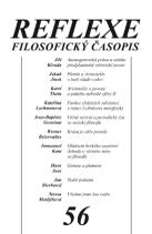Nameless Thearchy – Thearchy With Many Names Theology of the Divine Names and its Metaphysical Assumptions in Dionysius the Areopagite
The topic of the article is Dionysius’s theology of the divine names.
Part I focuses on the method employed by Dionysius for legitimizing the possibility of theological predicates or propositions. It is shown that Dionysius’s theological semantics is grounded in a metaphysical concept, one that distinguishes between the transcendent divinity itself, principially inaccessible for both human knowledge and human language, and its differentiated „developings“ „into“ the created world – the so-called „processions“ or „participations“ – that establish a path for theological knowledge and theological utterances. In Part II, this metaphysical concept is demonstrated to be an original re-interpretation of the teaching of Proclus. This re-interpretation consists in reducing drastically the number of the ontological degrees acknowledged by the Neoplatonic system of hierarchy, so as to make it compatible with the Christian worldview. Nevertheless, the main instrument employed in this elimination of mediating levels is Proclus’s own theory of causality and participation. The specific ontological status attributed by Dionysius to the realm of „processions“ or „participations“ can be explained exactly by the fact that the three-member scheme of imparticipated/imparticipable – participated – participant, Proclus’s own toll for solving the problem of the causative relationship between various ontological degrees, is applied by Dionysius onto the relationship between the One God and its creation.
Backlinks: Reflexe 37
